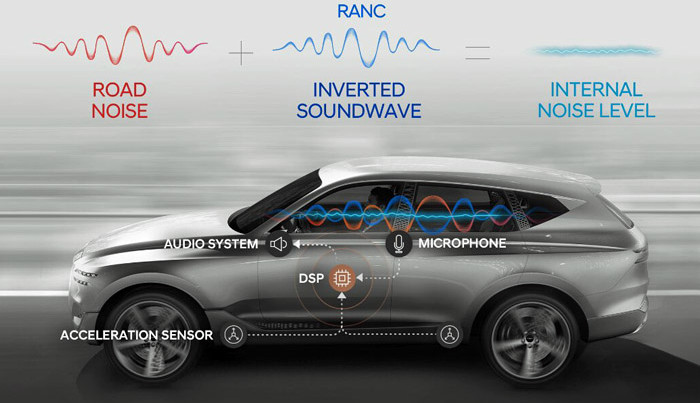Enhanced Road Noise Cancellation
November 19, 2019
on
on

Hyundai has been working on a new RANC (Road Active Noise Control) system that can improve on standard ANC (Active Noise Cancellation) to reduce road noise by a further 3 dB. The new system offers advantages over conventional sound deadening ‘passive’ techniques which are both costly and add additional weight to the vehicle. Hyundai have designed the system to not only be effective against continuous noises produced by the engine and transmission (which can be attenuated by existing noise cancellation techniques) but also to intermittent sounds caused by irregularities in the road surface.
The system is the result of a six year development program and relies on a number of accelerometers and microphones fitted throughout the vehicle, so that RANC can effectively counteract low-frequency noises.
The system supplies specific noise cancellation patterns targeted at the driver and passenger seating positions. Tests showed that RANC was able to cut cabin noise by around 3dB — approximately half the level measured in vehicles not using the RANC technology.
The system is the result of a six year development program and relies on a number of accelerometers and microphones fitted throughout the vehicle, so that RANC can effectively counteract low-frequency noises.
Signals target driver and passengers
A DSP analyses the incoming signals and calculates the appropriate noise cancellation signals sent to loudspeakers positioned in the vehicle cabin. Using optimized algorithms it only takes 2 ms to analyze the signals and synthesize the appropriate anti-sound signal.The system supplies specific noise cancellation patterns targeted at the driver and passenger seating positions. Tests showed that RANC was able to cut cabin noise by around 3dB — approximately half the level measured in vehicles not using the RANC technology.
Read full article
Hide full article


Discussion (0 comments)